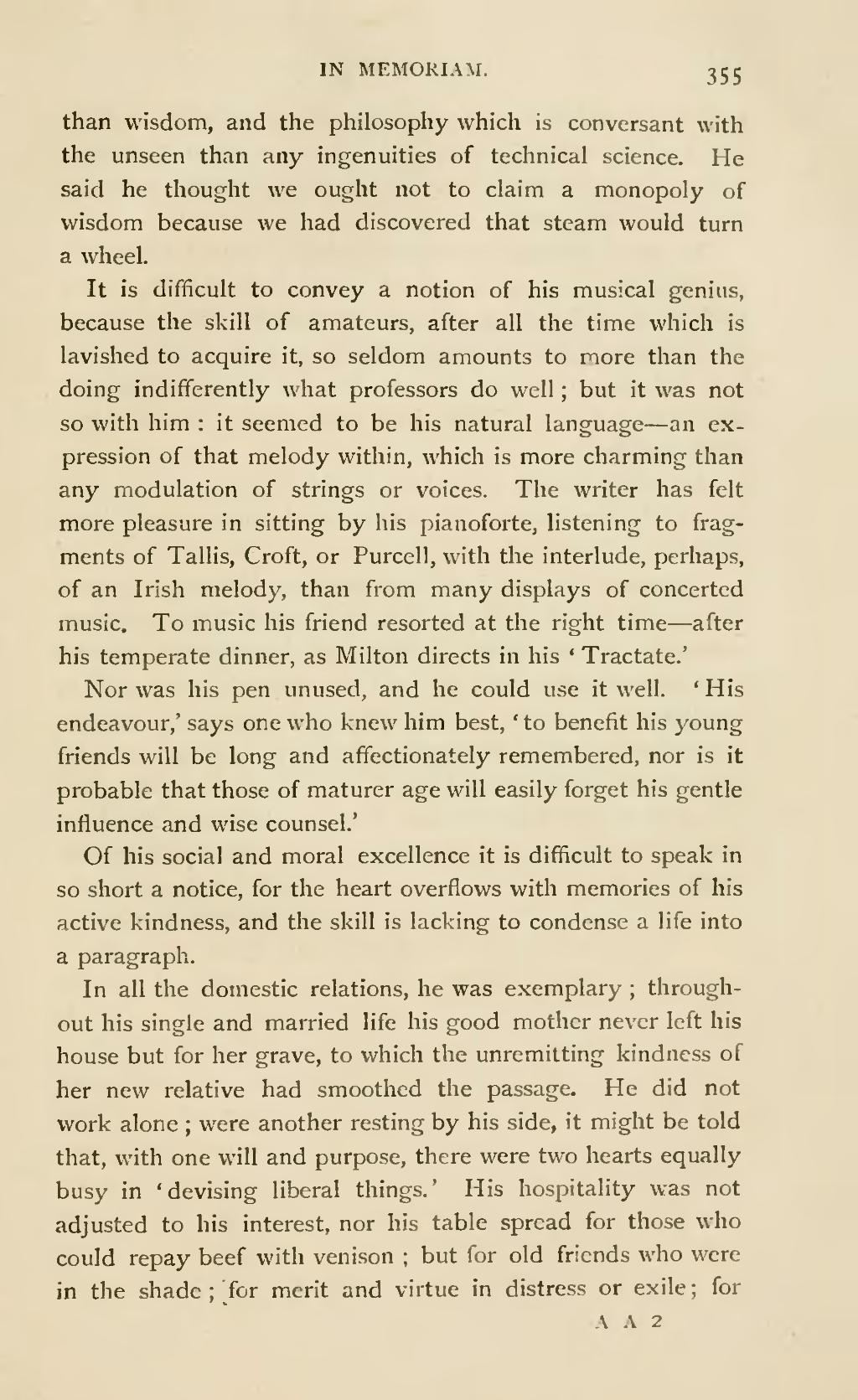than wisdom, and the philosophy which is conversant with the unseen than any ingenuities of technical science. He said he thought we ought not to claim a monopoly of wisdom because we had discovered that steam would turn a wheel.
It is difficult to convey a notion of his musical genius, because the skill of amateurs, after all the time which is lavished to acquire it, so seldom amounts to more than the doing indifferently what professors do well; but it was not so with him: it seemed to be his natural language—an expression of that melody within, which is more charming than any modulation of strings or voices. The writer has felt more pleasure in sitting by his pianoforte, listening to fragments of Tallis, Croft, or Purcell, with the interlude, perhaps, of an Irish melody, than from many displays of concerted music. To music his friend resorted at the right time—after his temperate dinner, as Milton directs in his 'Tractate.'
Nor was his pen unused, and he could use it well. 'His endeavour,' says one who knew him best, 'to benefit his young friends will be long and affectionately remembered, nor is it probable that those of maturer age will easily forget his gentle influence and wise counsel.' Of his social and moral excellence it is difficult to speak in so short a notice, for the heart overflows with memories of his active kindness, and the skill is lacking to condense a life into a paragraph.
In all the domestic relations, he was exemplary; throughout his single and married life his good mother never left his house but for her grave, to which the unremitting kindness of her new relative had smoothed the passage. He did not work alone; were another resting by his side, it might be told that, with one will and purpose, there were two hearts equally busy in 'devising liberal things.' His hospitality was not adjusted to his interest, nor his table spread for those who could repay beef with venison; but for old friends who were in the shade; for merit and virtue in distress or exile; for
